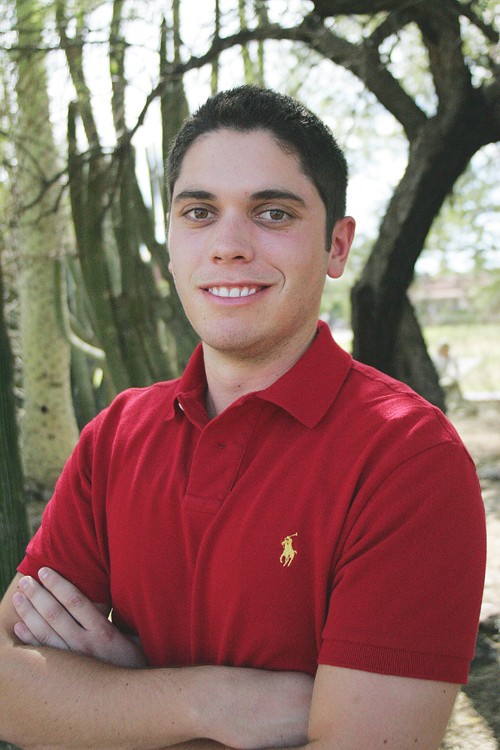Younger Republicans are getting a boost of energy from what they see as an opportunity to appeal to voters who are displeased with the country’s direction, said active members of conservative groups on campus.
Leaders of groups such as Young Republicans and College Republicans are finding it easier to motivate young Republicans to get actively involved in political organizations, said Mike Cole, chairman of Pima County Young Republicans.
Cole serves as a liaison between his organization and local politicians, for whom he and his group campaign. Young Republicans’ members are between 18 and 40 years old. Cole said the main goal of his organization is to support candidates at a local and national level, and to help rally support for conservative causes. He said he felt Republicans had gotten complacent until the Democrats took control of both Congress and the White House after the November elections.
“”It’s helped our numbers go up a lot,”” he said. “”The past few years, with the Republicans in office, young people like me and Republicans in general felt like we have both of them, so we don’t really need to volunteer. Now with the Democrats taking over both congress and the White House, we’re realizing we need to work harder.””
Cole said he was involved in two fundraisers at the local “”Tea Party”” rallies in the last five months, which he said raised about $1,200 by selling donated bottles of water. The organization’s newfound wealth may have been a catalyst for collaboration between College Republicans and Young Republicans, he said.
“”We are starting to work together this year,”” he said. “”Maybe they saw we have money now.””
Young Republicans set up its first Facebook page in March, which has helped the organization draw attention to itself and make it easier to communicate with its 109 members, Cole said.
While Cole said the primary role of the Young Republicans is to support Republican candidates in general elections, he said he noticed more of its members’ views aligned with the libertarian “”hands-off”” approach rather than with the socially conservative views of the religious right.
“”I’ve noticed a lot more people are a lot more independent now,”” he said.
Ry Ellison, last year’s president of UA College Republicans and a management and entrepreneurship senior, said Democratic control of the executive and legislative branches of government have gotten local Republicans more actively involved in politics, citing the Tucson Tea Party and demonstrators at town hall meetings where the health debate has taken place.
“”The president has mistakenly interpreted his victory as a mandate for a liberal agenda,”” he said. “”When the Democrats take control, you see kind of a kid in a candy store (mentality). They don’t know what to grab first, so they try everything at once and it turns out to be a disaster.””
College Republicans is described on its Facebook page as “”the grass-roots army needed for victory in major campaigns,”” and lists 503 “”friends,”” although not all friends are university students and at least one, “”McCain Southwest,”” is described in its profile image as a “”team.””
Ellison said although membership has increased slightly in the past year, he hasn’t noticed a significant spike.
The UA College Republicans is one chapter of over 2,500 nationally, and the UA chapter has about 2,200 members “”on paper,”” Ellison said. The 2,200 members are people who have filled out the paper work for membership or the listserv, but are not necessarily attending the club’s weekly meetings, he said.
Jennifer Rogers, vice president of UA College Republicans said she has noticed more Republicans who were previously not involved in political clubs becoming more involved.
“”Our membership has increased with people who (were) Republican or conservative before, but weren’t politically motivated to get involved in a club, but now that there is a Democratic majority, they think maybe they should get involved,”” she said.
College Republicans has recruited a lot of people who were independent or moderate, but no former Obama supporters that she knows of, Rodgers said. She described the political climate on campus as “”even more polarized”” since Obama took office.
Rogers said that publicity remained a priority at a university dominated by liberal politics.
Because so many campuses are heavily liberal, she said, “”one of our main goals is to let people know that there is a conservative presence on campus.””









